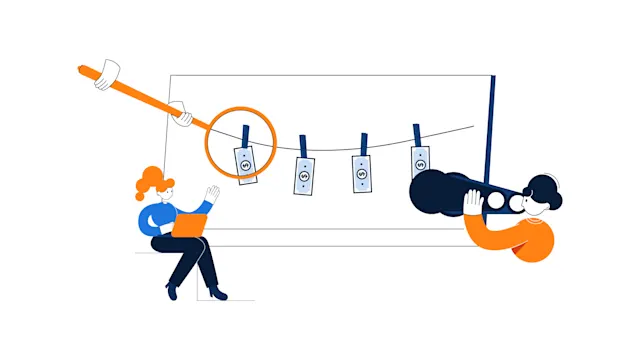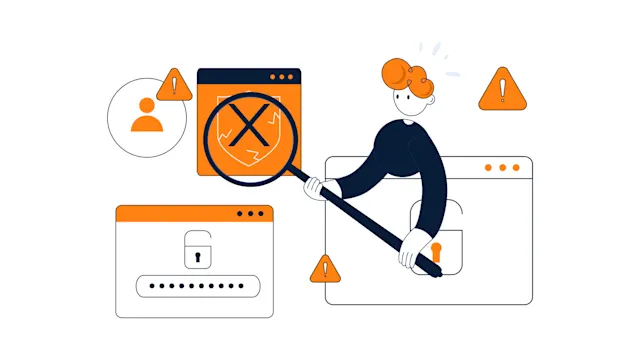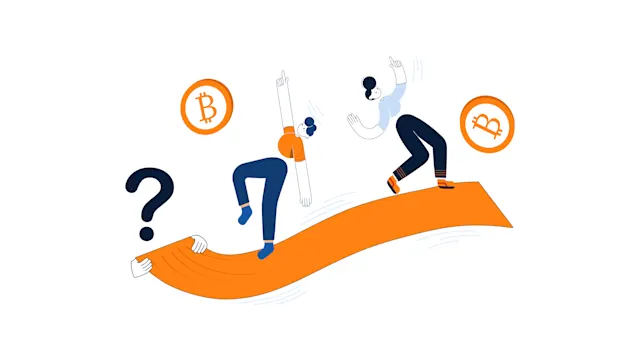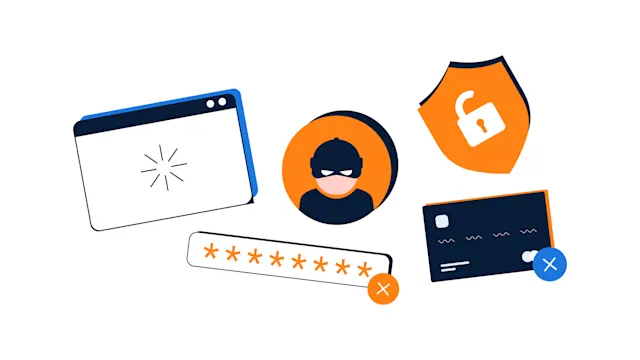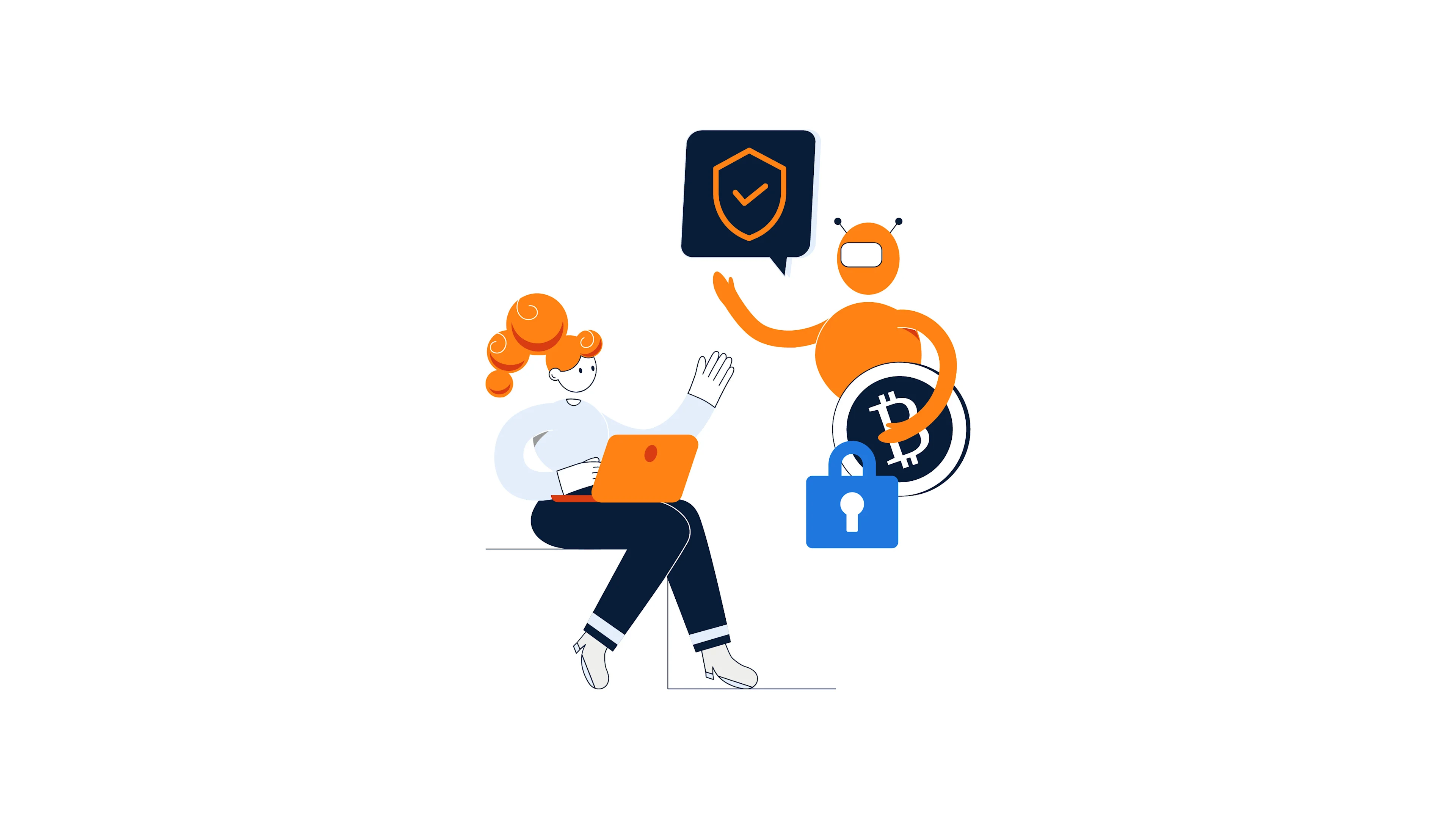
Beginner's Guide to Security
Blockchain technology and Cryptocurrencies have introduced us to a world of new possibilities.
Blockchain technology and Cryptocurrencies have introduced us to a world of new possibilities, but this has also opened the doorway to a range of risks that requires especially inexperienced users to be more responsible when using such services. Below are a few guiding principles one should consider to help mitigate the risks of trading and holding digital assets.
Maintain Privacy
Most attacks are broad in their targets and work as a net to catch gullible individuals, although one can become a target by revealing sensitive information about oneself.
Do not boast about your successful trading rallies and balances on social media or to the masses.
Try not to share public addresses where it is unnecessary, as people will be able to backtrack all your wallets and learn how much you hold.
Avoid sharing information that can link your anonymous wallet to your real (IRL) identity.
Protecting yourself
An important aspect of blockchain technology is that it aims to give users full custody and control of their assets, but this directly comes with additional responsibilities. Users may be used to bank control financial transfers; thus, the responsibility of preventing fraud is not on the user but the bank. Moreover, where there is a need to reverse transactions, the bank can be called upon to do so. This is not the case with cryptocurrencies. Once transactions are completed, they cannot be reversed. Below are a few recommendations on how to take up this responsibility and protect yourself.
Use strong passwords and try not to reuse the same password for different accounts.
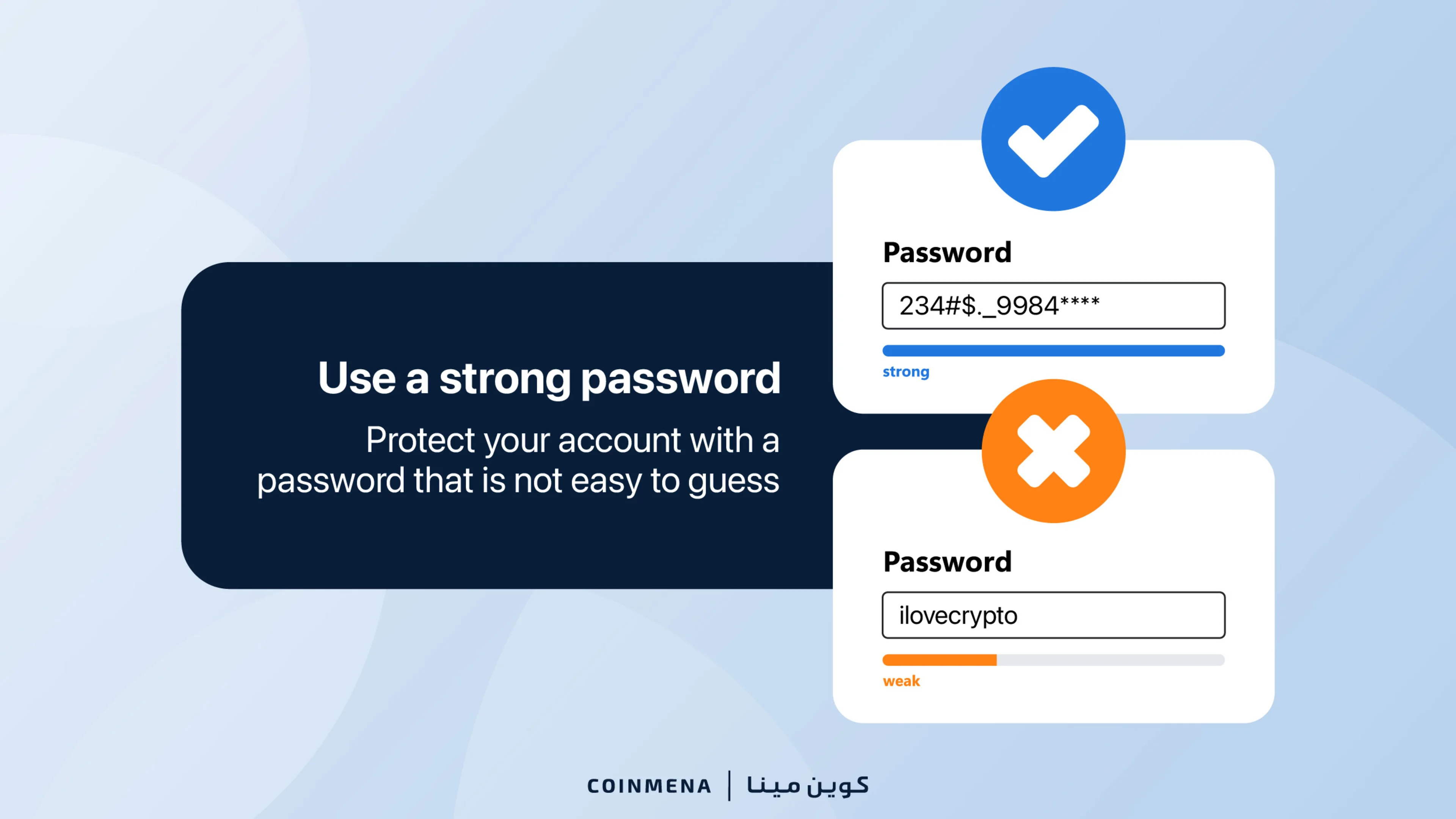
Try to avoid using cloud or browser-based password managers as these can become a single point of failure (e.g., google chrome password manager).
Use 2-Factor Authentication (2FA) to provide extra protection for online accounts. As a tip, phone-based 2FA (e.g., google or Microsoft authenticator) can be more secure than email or SMS 2FA. Additionally, one can use a “security key,” which is a hardware device for 2FA.
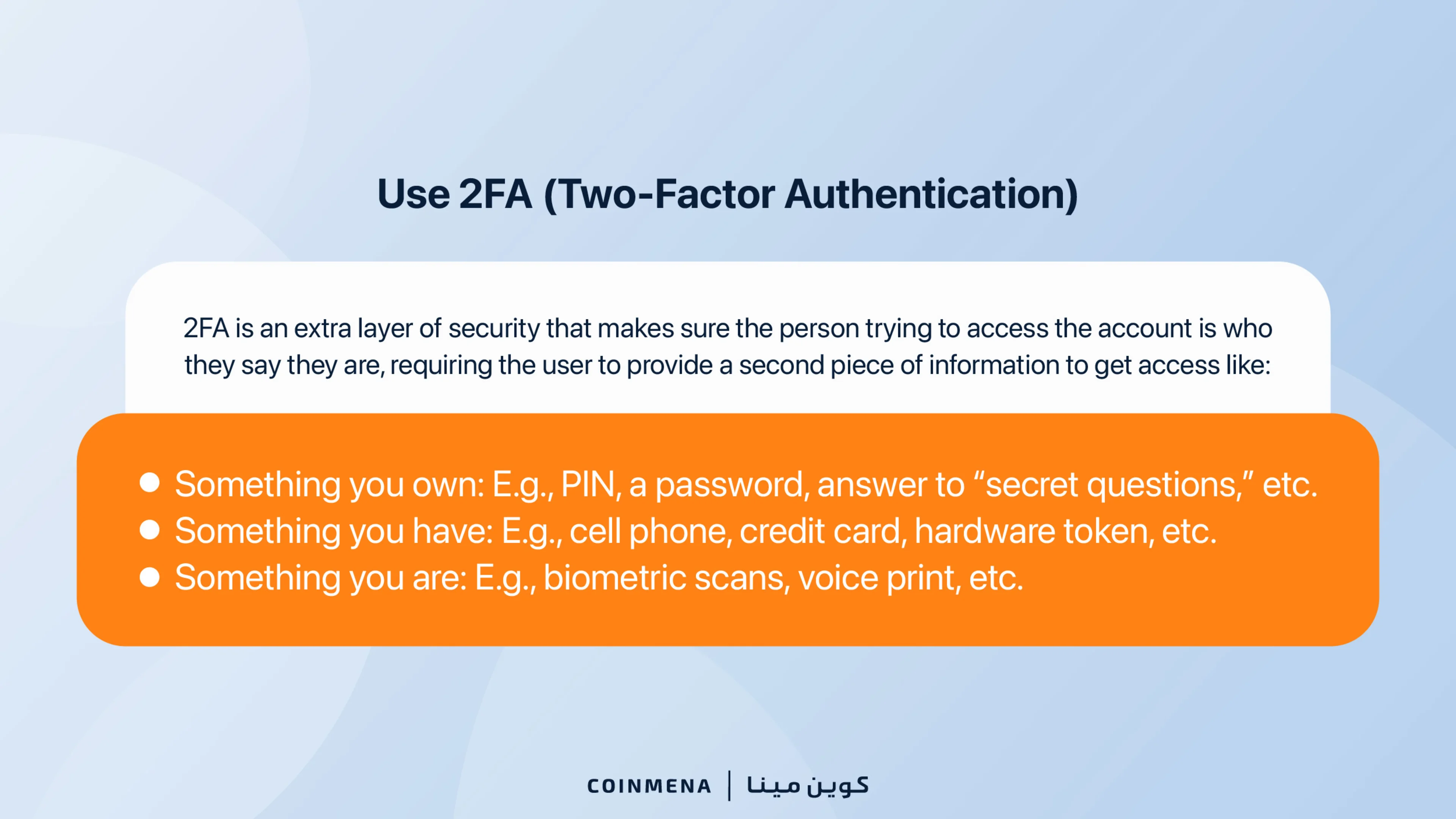
Use separate emails for different purposes (work, friends, crypto accounts) to avoid one point of failure for all your information and holdings.
Only rely on reputable exchanges that are well recognized and regulated such as CoinMENA, which is fully regulated by the Central Bank of Bahrain.
Keep your devices virus-free by doing frequent clean-ups.
Avoid fraudulent links and applications by double-checking with official communication channels or reviews from the community.
The best part about crypto is the sense of community-built projects and open development; therefore, it is wise to follow and check with reputable figures and entities within the crypto space that can be found mainly on crypto-twitter and Youtube.
Protect yourself from yourself:
Before making a transaction, double-check and triple-check for typos. Additionally, ensure that transaction details such as the network being used, receiving address, and the amount is correct.
Use multi-signature wallets for extra protection in case you lose one of your keys.
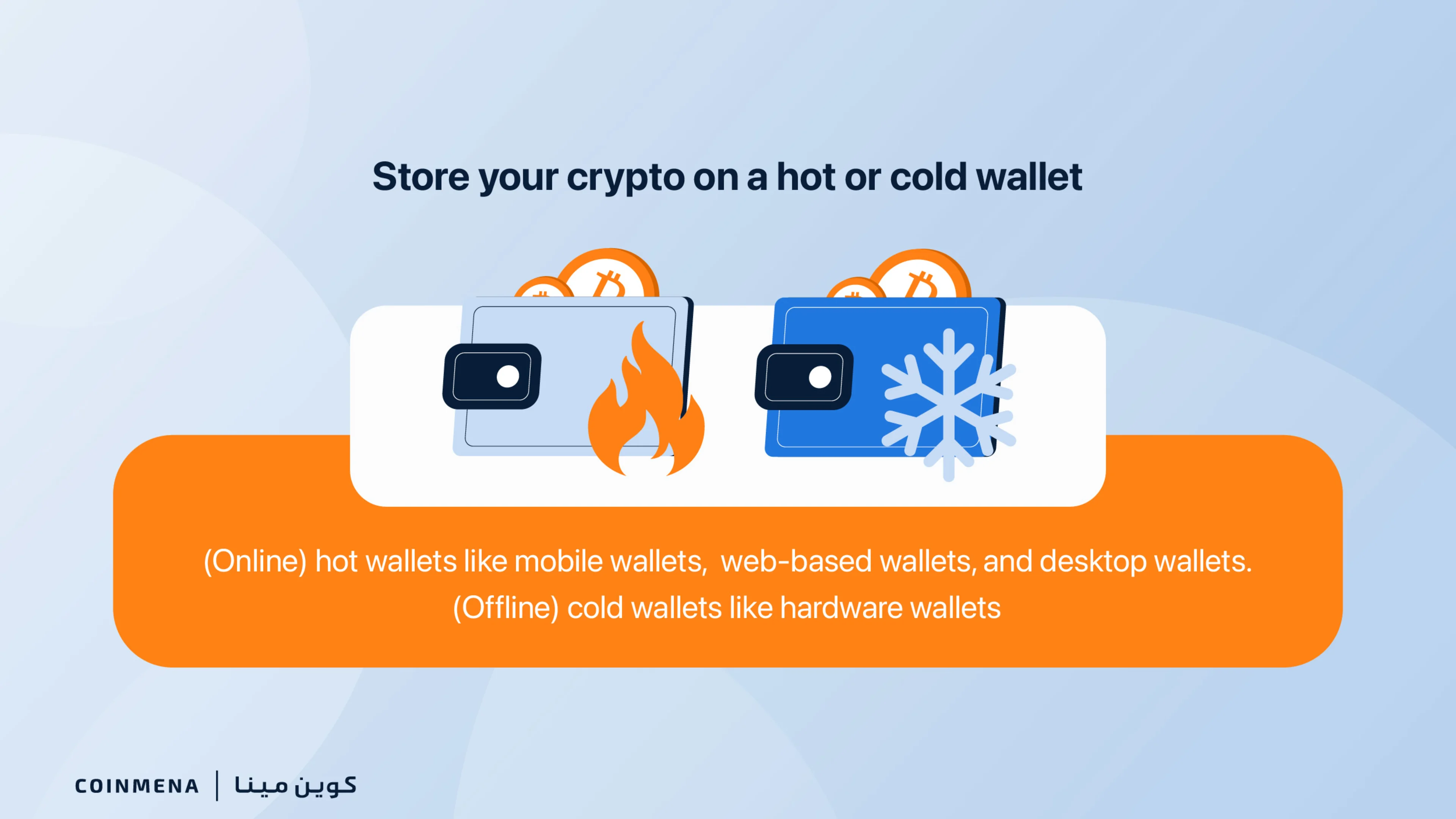
3. To mitigate the risks mentioned above, when dealing with a new address, wallet, or service, conduct “test transactions” with small amounts to verify their legitimacy.
